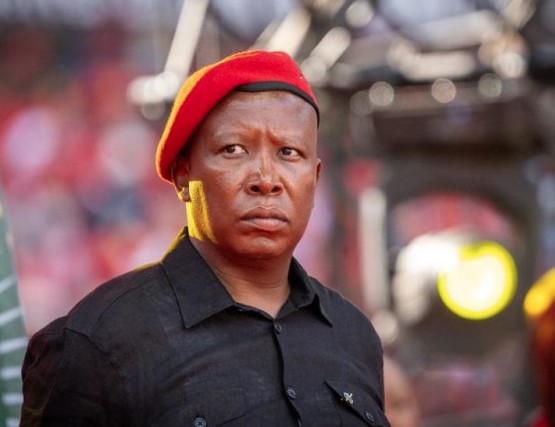Julius Malema Sparks Global Outrage Over Hate Speech Allegations
A political controversy has erupted following the circulation of a video featuring Julius Malema, a South African political leader, making inflammatory remarks. The video, which quickly spread across social media, shows Julius Malema using strong language that many interpreted as inciting violence against a specific racial group. The statement included phrases suggesting harm toward individuals and their families, prompting global outrage. Critics argue that such rhetoric could escalate tensions within the country and beyond.
Elon Musk, a billionaire entrepreneur with South African roots, took to social media to express his deep concerns. In a strongly worded message, he called on the South African government to address the issue, questioning why such remarks were being tolerated. Musk also reached out to U.S. leadership, urging them to impose sanctions on Julius Malema and formally declare him an international criminal. His call for action sparked further debate, with many people supporting his stance, while others questioned whether external interventions were necessary.
International human rights organizations have also reacted to the controversy, emphasizing the importance of preventing any form of hate speech. Some groups have called for a thorough investigation into the statements made by Julius Malema, urging local authorities to ensure that political discourse does not cross the line into incitement. While some South African political supporters defended the remarks as mere expressions of frustration, others within the country have raised concerns about the potential consequences of such statements.
U.S. Responds with Financial Restrictions on South Africa
The controversy arises amid already strained relations between the United States and South Africa. Recently, the U.S. government suspended financial aid to South Africa due to concerns over the Expropriation Act 13 of 2024, which allows land redistribution without compensation. This policy has sparked intense debate, with critics arguing that it unfairly targets certain communities. In response, the U.S. administration announced funding cuts to various programs, citing the need to ensure fair treatment of all citizens.
South African officials, however, have downplayed the impact of these financial restrictions. They pointed out that U.S. contributions make up only a small portion of the country’s budget, with the primary area affected being the President’s Emergency Plan for AIDS Relief (PEPFAR), which funds 17% of South Africa’s HIV/AIDS program. Government representatives reassured the public that essential services and economic stability would not suffer significantly due to the funding cuts.
Amid this financial dispute, the controversy surrounding Julius Malema has further escalated political tensions between the two nations. Some analysts believe the U.S. administration’s decision to withdraw aid is not only about economic concerns but also a response to political rhetoric from figures like Julius Malema. His remarks have sparked international condemnation, adding another layer of complexity to the strained relationship between South Africa and the U.S.
Political Tensions Escalate Amid Economic Concerns
The controversy has deepened political divisions within South Africa. While some citizens support Julius Malema’s remarks, viewing them as a response to historical injustices, others worry that such statements could escalate tensions and lead to violence. Julius Malema, known for his controversial stance, remains firm in his position, dismissing the backlash and continuing to push for policies that some consider extreme.
Internationally, the situation has drawn attention from business leaders, policymakers, and global organizations. Many are now debating how political rhetoric affects international relations and economic partnerships. Some analysts believe that Julius Malema’s remarks could further strain South Africa’s diplomatic ties with Western nations, especially given the U.S. government’s focus on human rights and political stability.
Within South Africa, reactions remain mixed. Some political and social groups have called for calm discussions to address deep-rooted issues, while others argue that international sanctions could serve as a warning for political figures like Julius Malema. As debates over free speech, political responsibility, and foreign intervention continue, the global spotlight remains on South Africa’s challenges with race, land policies, and governance.


